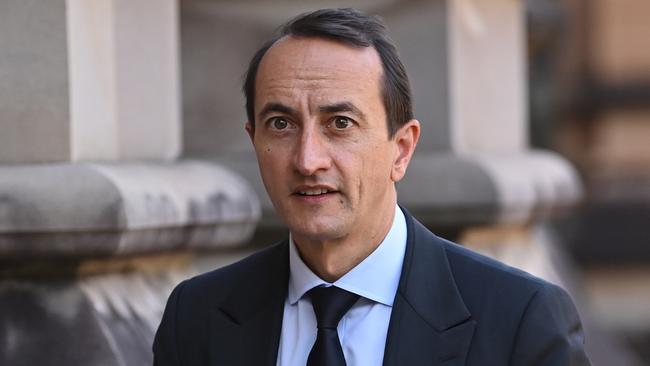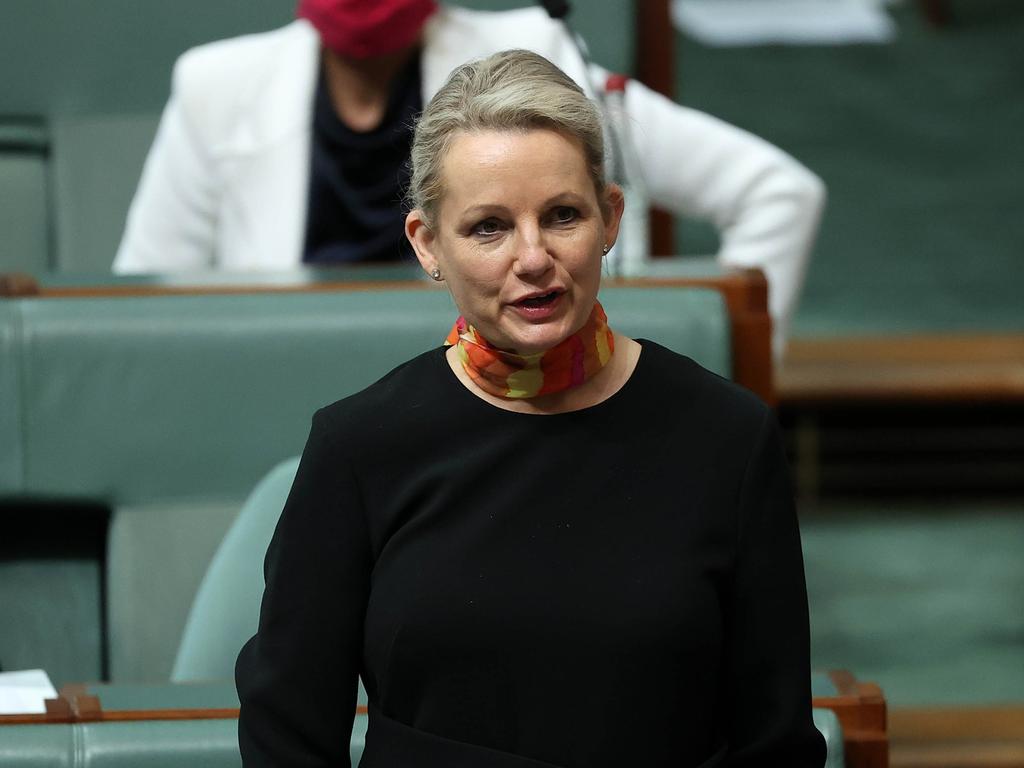Coalition split on climate targets
Dave Sharma backs Australia committing to an emissions reduction target of 40-45 per cent by 2035 in a fracturing of the Coalition partyroom.

Liberal MP Dave Sharma has backed Australia committing to an emissions reduction target of 40-45 per cent by 2035 in a fracturing of the Coalition partyroom ahead of a key global climate change conference in November.
The push for greater ambition comes as Scott Morrison seeks to persuade the leaders of India and Japan to look beyond the adoption of targets at this week’s first face-to-face leaders’ meeting of the Quadrilateral partnership in Washington.
But Mr Sharma, who represents the affluent Sydney seat of Wentworth, will tell the University of Sydney NSW Energy Institute on Tuesday that the world has changed since 2015 when Tony Abbott committed to lowering emissions by 26-28 per cent of 2005 levels by 2030.
“With our submarines, we dramatically updated a decision we made in 2016 to reflect our new national circumstances of 2021,” Mr Sharma said in an advance of his address obtained by The Australian. “When it comes to our climate and energy policy, the positions we adopted in 2015 no longer reflect our national circumstances of 2021.”
Mr Sharma’s call for more ambitious medium-term targets will deepen the climate divide within the Coalition, with a group of Nationals launching a new push for a coal-fired power station to be built on the site of the damaged Callide power station in central Queensland.
Nationals senator Matt Canavan, retiring Flynn MP Ken O’Dowd and the party’s Flynn candidate Colin Boyce visited the Callide station on Monday and called on the Queensland government to fund the construction of a new coal-fired power generator.
The Nationals made headway in Queensland during the last election by promising government funding for a feasibility study into a new coal-fired power station in Collinsville.
However, The Australian understands the feasibility study on the Collinsville project will not be finalised until after mid-2022, avoiding a difficult pre-election announcement on the fate of the controversial proposal.
With Liberals rebuffing calls from the Nationals for new coal-fired generators, Mr Sharma argued that most of the developed world and every Australian state and territory had now committed to net-zero by 2050.
“To be credible, we need a firm target and accompanying plan to reach net-zero emissions by 2050,” he said. “We need sufficiently ambitious milestones and interim targets along the way to reach net zero by 2050.”
“I think there is a strong case to be made to update our 2030 target, particularly as we are likely to overachieve it. Clearly, though, our next nationally determined contribution, with a post-2030 target, needs to be significantly higher in ambition.
“A 2035 target of 40-45 per cent below our 2005 levels is achievable on the technology and policy levers available today, and will put us on a managed transition to net-zero by 2050.”
The Prime Minister is expected to back a net-zero by 2050 target at the climate summit in Glasgow, but has so far resisted any push for new formal targets for 2030 or 2035. He has instead pushed an alternative approach where success on climate change is measured against results rather than future ambitions or targets.
Mr Morrison has urged Indian Prime Minister Narendra Modi and Japanese leader Yoshihide Suga to consider the importance of securing vital supply chains for energy resources and the role of new technologies in reducing emissions.
Mr Morrison said on Monday the four-way partnership meetings in Washington, along with US President Joe Biden, would discuss Covid vaccines and “critical technology supply chains and addressing climate change will all feature heavily on our agenda for discussion”.
Australia has argued since last year that setting carbon emissions reduction targets is not enough, unless the targets are achieved.
The talks with Mr Modi and Mr Suga included recognising nations such as Australia as being at the front of the energy supply chain, India being in the middle as both a consumer of energy imports and a producer, and Japan as an end consumer.
Japan was instrumental at the G7 summit in England in June in ensuring there was not a general statement opposing finance for all coal-fired power but included the qualification of “unabated” coal-fired energy. Japan is a consumer of coal but an exporter of coal-fired power technology that reduces greenhouse gas emissions.
Mr Biden has been critical of nations not committing to a 2050 net-zero target, and Mr Morrison will have to address the issue during his US visit.
Anthony Albanese said Mr Morrison was making Australia a “pariah on the international stage” by failing to commit to zero emissions by 2050.
The Opposition Leader said that a clear priority for Mr Biden was “real action on climate change” and Mr Morrison had to recognise action on climate change was “good for jobs”.
Mr Morrison has emphasised the new defence agreement between Australia, the US and the UK, but said the “primary purpose” of his five-day US visit was the meeting with Mr Biden and the Quadrilateral leaders.






To join the conversation, please log in. Don't have an account? Register
Join the conversation, you are commenting as Logout